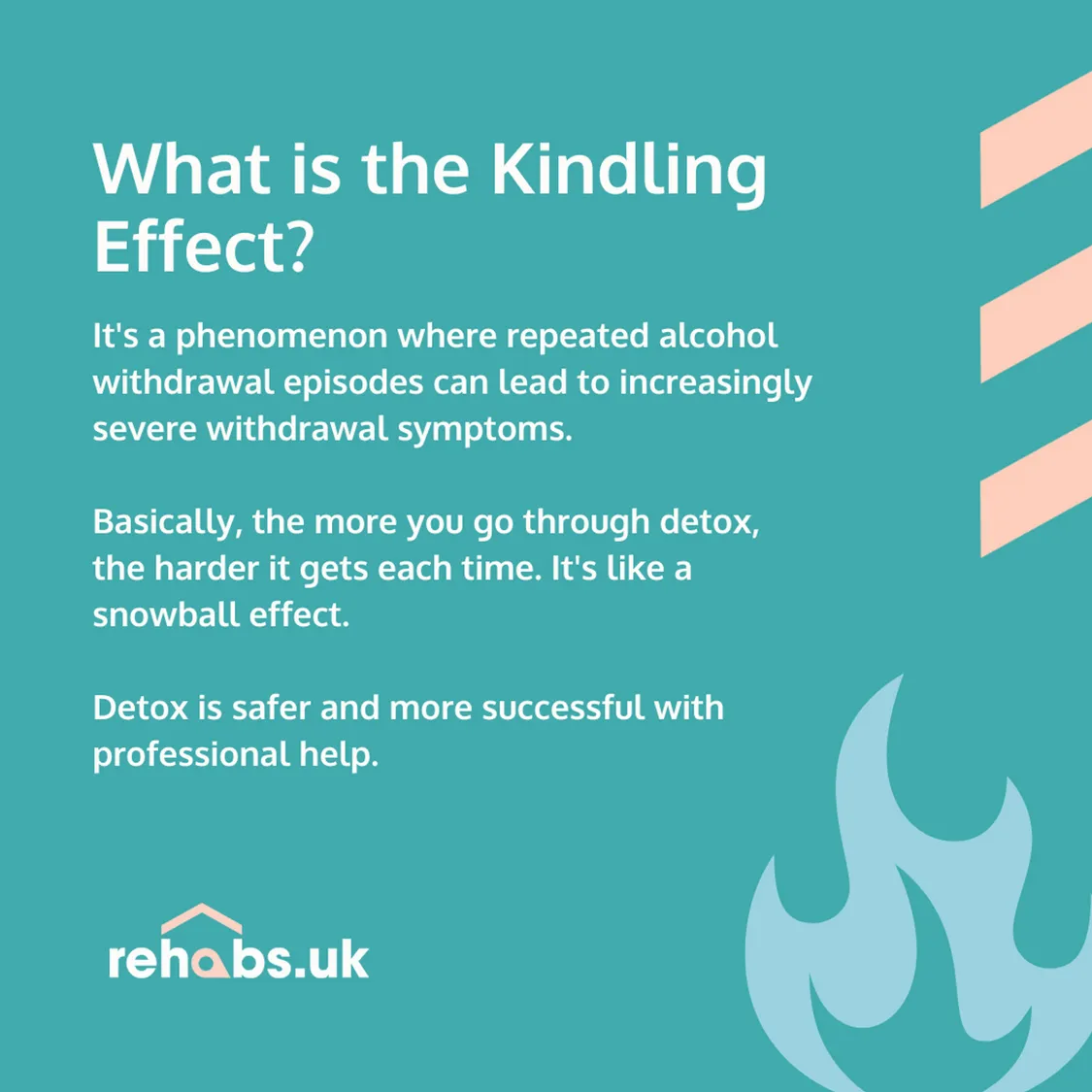12 Jun 2023
Alcohol is a widely consumed substance that can have significant effects on the body and mind. One lesser-known phenomenon associated with alcohol abuse is the kindling effect. In this blog, we will explore what the kindling effect is, its signs and symptoms, underlying causes, who is most at risk, and the importance of seeking help. If you or someone you know is struggling with alcohol abuse, it's crucial to understand the kindling effect and seek appropriate assistance. Rehabs UK is an excellent resource for guidance, treatments, and rehabilitation support.
What is the Kindling Effect?
The kindling effect refers to the progressive and heightened response of the brain and body to repeated alcohol withdrawal episodes. When individuals regularly consume alcohol over a prolonged period and experience repeated withdrawal periods, the severity and intensity of withdrawal symptoms tend to increase. Essentially, the brain becomes more sensitised to alcohol withdrawal, leading to more severe symptoms with each subsequent withdrawal episode.

What are the Signs and Symptoms of the Kindling Effect?
The signs and symptoms of the kindling effect can vary from person to person. Some common indicators highlighted in a study include:
Increased alcohol withdrawal symptoms: Individuals may experience more intense withdrawal symptoms, such as tremors, anxiety, irritability, and sweating, with each withdrawal episode.
Worsening psychological symptoms: The kindling effect can contribute to an exacerbation of psychological symptoms, including depression, anxiety, and insomnia.
Seizures: Seizures, including alcohol withdrawal seizures or delirium tremens (DTs), can occur in severe cases of the kindling effect.
Hallucinations: Individuals may experience auditory, visual, or tactile hallucinations during alcohol withdrawal, especially as the kindling effect progresses.
Gastrointestinal issues: Nausea, vomiting, and gastrointestinal discomfort may become more pronounced during withdrawal episodes.
It's important to note that not everyone who abuses alcohol will develop the kindling effect. However, those who experience repeated withdrawal episodes are at a higher risk.
What Causes the Kindling Effect?
The exact mechanisms underlying the kindling effect are not yet fully understood. However, it is believed to involve changes in the brain's neurochemistry and the excitability of certain brain regions. Prolonged exposure to alcohol can alter neurotransmitter systems, such as gamma-aminobutyric acid (GABA) and glutamate, leading to dysregulation in neuronal activity. These changes can result in an increased susceptibility to seizures and hyperexcitability during alcohol withdrawal.
Medical experts suggest that genetic factors, long-term alcohol abuse, and previous withdrawal experiences can contribute to the development of the kindling effect. Research has shown that individuals with a family history of alcoholism may be more susceptible.
Who is Most at Risk from the Kindling Effect?
While anyone who abuses alcohol is at risk of developing the kindling effect, certain individuals may be more vulnerable. Those who have a history of chronic alcohol abuse, repeated withdrawal episodes, or a family history of alcoholism are more likely to experience the kindling effect. It's crucial to recognise the potential risks and seek appropriate help if you or a loved one exhibits signs of the kindling effect.
Getting Help is Key
If you suspect that you or someone you know is experiencing the kindling effect or struggling with alcohol abuse, seeking professional help is vital. Rehabs UK offers expert advice, treatment options, and support for individuals seeking to overcome alcohol addiction. Our team of professionals can guide you through the journey to recovery, providing customised rehabilitation plans and therapies tailored to individual needs. Contact us today!
